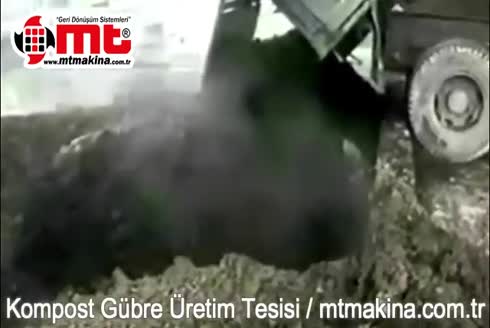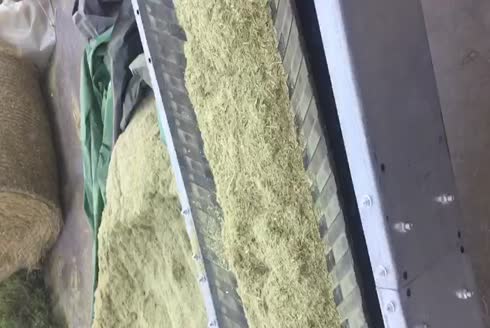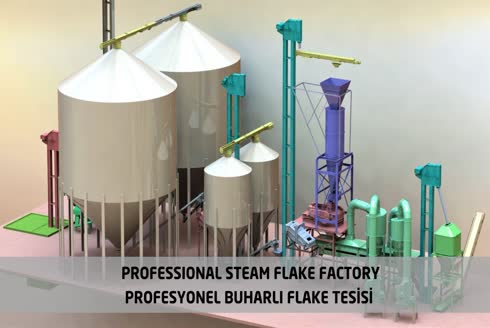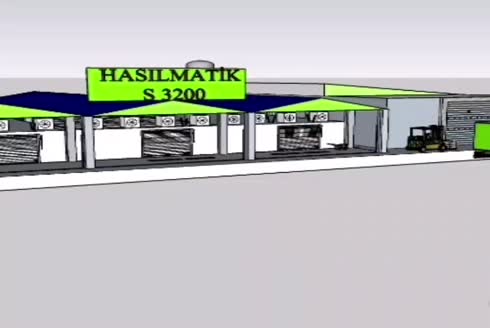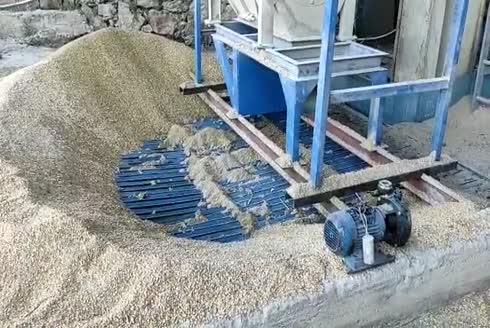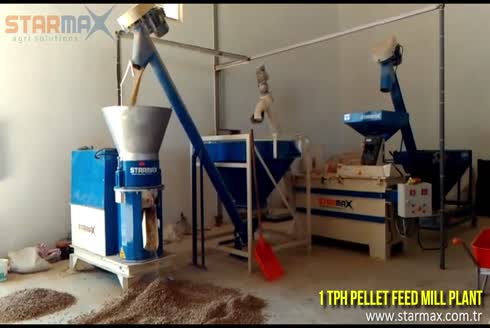Compost Fertilizer Plant And Packing Unit / Video
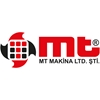
MT Makina Geri Dönüşüm Sistemleri İml. İth. İhr. San. Tic. Ltd. Şti.
tarafından 27.03.2024 tarihinde eklendi.
MT Machine
Compost Fertilizer Plant and Packing Unit
COMPOST FERTILIZER PLANT
- Compost improves soil quality and structure
- Supports moisture retention
- Helps suppress plant diseases and pests
- Regular use of compost reduces the need for chemical fertilizers
- Supports the growth of beneficial bacteria and fungi that decompose organic matter into humus
- Landfill reduces methane emissions
- Minimizes carbon footprint
- Processing with animal waste, agricultural waste, industrial waste, domestic waste, mineral waste and sludge waste
- Controllable with PLC
What are the features of the Compost Fertilizer Plant?
Compost Converter
Fertilizer Granulator
Fertilizer Spreader
Fertilizer Mixer
Rotary Dryer
Rotary Cooler
Rotary Screen
Rotary Drum Coating Machine
Fertilizer Packer
For compost fertilizer applications, Compost Fertilizer Plant;
Compost is a mixture of substances and organic matter used to enrich and improve the soil, usually made by decomposing plants, food waste and other organic matter. Compost provides nutrients such as nitrogen, phosphorus and potassium to the soil and improves its ability to retain these nutrients for longer. On the other hand, fertilizers are organic or chemical compounds used to nourish plants. The primary nutrients are nitrogen, potassium and phosphorus, all vital plant minerals, so farmers regularly use fertilizers to increase crop productivity. Compost and manure are complementary and both play an important role in keeping your crops and soil healthy.
The main difference between compost and manure is their purpose. Compost nourishes the soil, while fertilizers provide nutrients for plants. As a result, the use of compost is flexible and general, while fertilizer amounts and composition are more stringent to meet the exact needs of the plants.
Adding fertilizer to crops increases the amount of nutrients in the soil, but all substances will meet the needs of fast growing plants. The soil food web does not benefit significantly from the presence of manure. Therefore, compost should be used to maintain the balance and health of the soil.
Both manure and compost can be organic or enriched with chemicals. Organic materials are more likely to preserve soil composition, and all chemical products, whether fertilizer or compost, should be handled with care.
Animal Waste;
Slaughterhouse waste, fish market waste, chicken manure, pig manure, cattle manure, cow manure, horse manure, sheep manure, duck, goose, rabbit, goat, etc. such as animal manure.
Agricultural Wastes;
Straw, crop straw, soybean meal, bean sludge, cotton sludge, cottonseed meal, rice bran, biogas waste, mushroom etc. such as agricultural waste.
Industrial Wastes;
Wine residue waste, vinegar waste, cassava waste, sugar etc. such as industrial waste.
Domestic Waste;
Food waste, bones, roots and leaves of vegetables, etc. such as household waste.
Mineral Wastes;
Humic acid, bentonite, dolomite etc. such as mineral wastes.
Sludge Wastes;
River sludge, pond sludge, sewage sludge, city etc. such as sludge.
Overall, Compost Fertilizer Plant models are quite flexible. Compost Fertilizer Production Plant, Compost Fertilizer Production Line, Compost
Fertilizer Plant, Compost Fertilizer Machine, Compost Fertilizer Production Machine etc. it can be used in many different recycling applications such as.
Compost Fertilizer Plant advantages;
After the selection and pre-treatment of raw materials, the first step in the production process of organic fertilizers is the preparation of compost. The Self Propelled Compost Turner is used to prepare compost. The main function of this compost spinner is to rotate and mix organic materials, thus speeding up the entire fermentation process.
After fermentation, the organic material has to be broken down and this step takes place in a high humidity manure crusher. This machine can grind materials with high moisture content. After the crushing and mixing process, the Organic Fertilizer Crushing Machine is used for the next step, the granulation process. This machine is used to granulate the raw materials used in the preparation of organic fertilizer. The fertilizer granules produced in this way have a high organic content and their particle size and properties can be adjusted by this granulator. After granulation, these granules need to be screend. Screening is done using a Fertilizer Screening Machine, which separates standard fertilizer granules from unqualified fertilizer pellets.
Organic fertilizer is prepared up to this stage and needs to be packaged. The fertilizer packaging process is done using the Automatic Fertilizer Packing Machine. This machine can pack 2-50 kg of fertilizer granules per bag. The biggest problem that arises during organic fertilizer production is dust pollution. The unloading of raw materials into the warehouse and transporting them to different workshops causes a lot of dust pollution. In addition, a lot of dust is mixed into the environment during the mixing and shredding of raw materials during the composting process and during the granulation phase.
